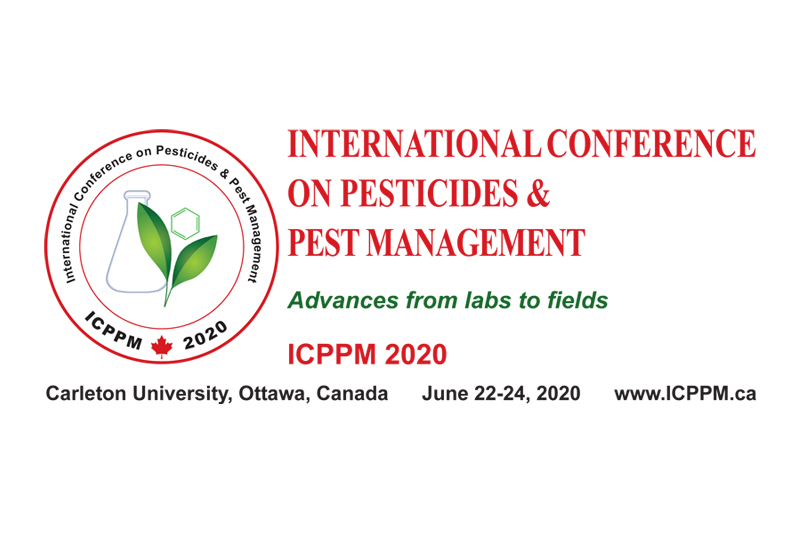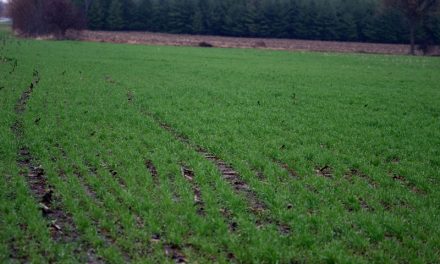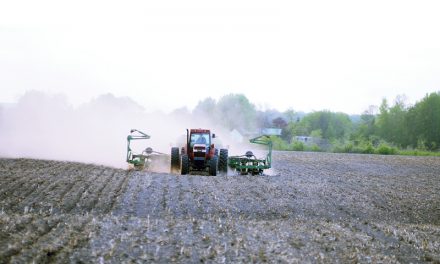OTTAWA – Recent advances covering the full spectrum from labs to fields will be discussed at the International Conference on Pesticides and Pest Management, ICPPM 2020. The three-day conference will take place at Carleton University, Ottawa on June 22-24, 2020. The conference is organized by Etcetera Publications, the publisher of Agrinews.ca, in collaboration with local and international academic and professional bodies.
The conference will focus on the themes of pesticides and pest management. Conference attendees will learn about cutting-edge research, technology and practice in these sectors and will have the opportunity to meet and network with peers. Field-leading experts will deliver keynote talks, while focused themed sessions will offer the opportunity to delve deeper into specific issues and solutions. Researchers, experts, consultants, and decision-makers from across the world have expressed interest in attending the event, representing a variety of organizations including government bodies, academic institutions and industry.
Global use of pesticides
Use of pesticides is essential to protect crops, food, commercial products, animal and public health from different pests, in addition to their use in landscaping and industrial areas. Use of these chemicals in agriculture has increased dramatically worldwide. The average use per area of cropland was 1.54 kg/ha in 1990; it reached 2.63 kg/ha in 2017, as reported by FAOSTAT. In 2016, Canada used 75,318 tonnes of pesticides (active ingredient), according to statistics from the Food and Agriculture Organization of the United Nations.
There are more than 1000 pesticides used worldwide to protect food from various pests and to control different diseases. Different topics related to pesticide science will be discussed at some sessions of ICPPM2020. The toxicity of a pesticide depends on its properties, mode of action and other factors. Nonetheless, pesticides are strictly regulated worldwide. The most toxic and persistent pesticides are banned, and the adverse effects of pesticides occur only in cases where exposure is above the safe level.
Obsolete pesticides
Obsolete pesticides refer to pesticides that cannot be used anymore as prescribed on the label and are considered dangerous toxic waste. Obsolescence may occur because a product has been expired, de-registered locally, or banned internationally.
Approximately 500,000 tonnes of obsolete pesticides are accumulated worldwide, 25 per cent of which are in Africa. Most of these hazardous chemicals are stored outdoors in leaking containers which lead to contamination of the soil and groundwater. Over $1.25-billion US would be needed to destroy all the stocks of obsolete pesticides, as reported by FAO.
Pesticides are only effective for a certain period of time; their shelf life depends on their active ingredients and the type of formulation. The stockpile of obsolete pesticides can be generated from: 1) small quantities resulting from use at limited scale such as producers or research institutions; 2) trade operations throughout the countries; 3) waste from pesticide production and formulation; 4) waste from accidents; and 5) deteriorated pesticides. Updates about this topic will be discussed during the conference.
New trends in pest management
ICPPM 2020 discusses innovative pest management strategies to prevent the spread of pests and to reduce the need for pesticide use. Integrated pest management (IPM) programs combine different management strategies and practices to grow healthy crops, and minimize the use of pesticides. IPM demonstrates that pesticide use can often be considerably reduced without affecting yields or farmer profits. In addition to IPM, the conference covers topics related to pest management, such as biological control, biopesticides, nano-pesticides, resistance to pesticides, and botanical pesticides.
Who’s attending ICPPM 2020?
The conference is open to the public, therefore, individuals interested in the conference topics may attend after completing the registration requirements at www.icppm.ca. For researchers and experts interested in presenting at the conference, the scientific committee evaluates all submitted presentations prior to including them in the final program of the conference.
Sponsors and exhibitors
ICPPM 2020 offers the opportunity to meet and network with peers. The conference offers flexible packages to suit the promotional requirements of national and international sponsors. Also, ICPPM 2020 offers the opportunity for exhibitors to show and visitors to see state-of-the-art pesticides and pest control technologies, and research results from leading research institutes, key industrial players and companies.
More details about the conference, speakers, sponsorship packages, registration, and venue are available on the conference website: www.icppm.ca. For direct inquiries you can reach the organizing committee by email at secretariat@icppm.ca.
Scope and topics of ICPPM 2020
The conference covers all areas related to pesticides and pest management, including:
- Pesticide regulation
- Pesticide chemistry and biochemistry
- Pesticide discovery
- Pesticide residues
- Pesticide analysis
- Mode of action of pesticides
- Fate of pesticides
- Environmental behaviour of pesticides
- Environmental pollution due to pest management
- Toxicology of pest management agents
- Decontamination of pesticides
- Pesticide disposal
- Heath risk assessment of pest management agents, including occupational health
- Resistance to pesticides
- Bio-pesticides and naturally occurring pesticides
- Nano-pesticides
- Pesticide removal
- Pesticide technology, formulations and application systems
- Pest management (entomology, plant pathology, nematology and weeds)
- Innovative pest management strategies
- Pre- and post-harvest pest management
- Economic impact related to pest management
- Integrated pest management
- Environmental sustainability in pest management
- Biotechnology and molecular biology in pest management













